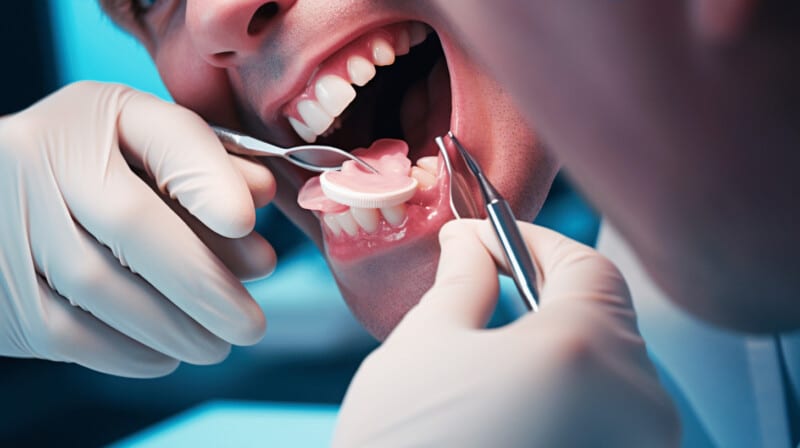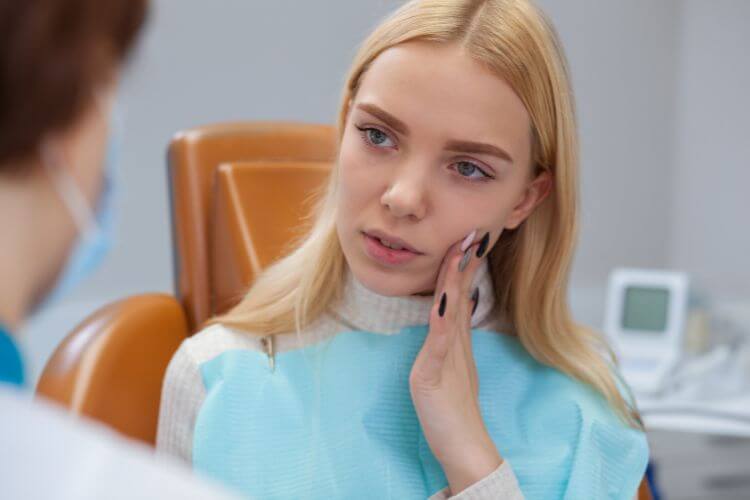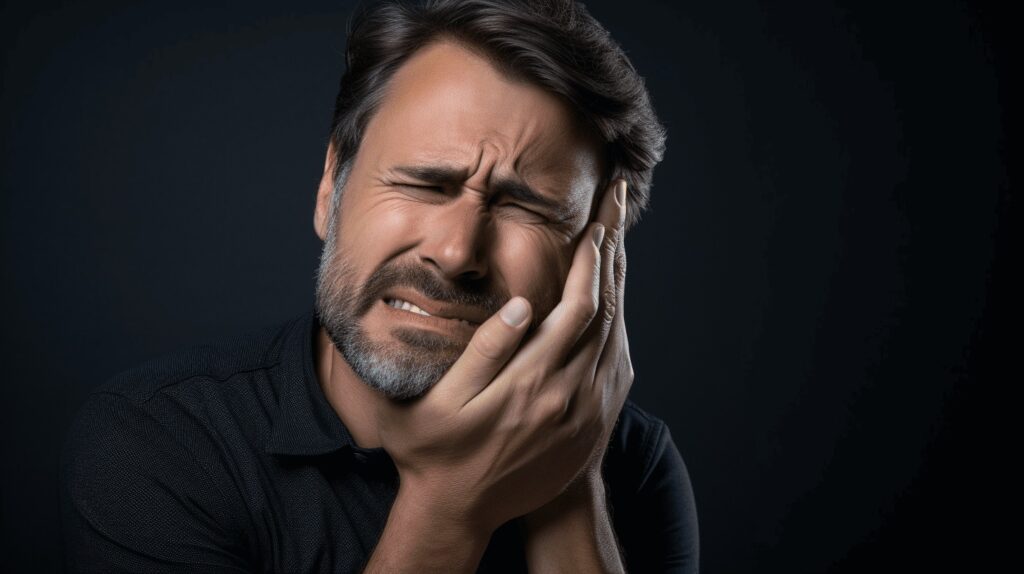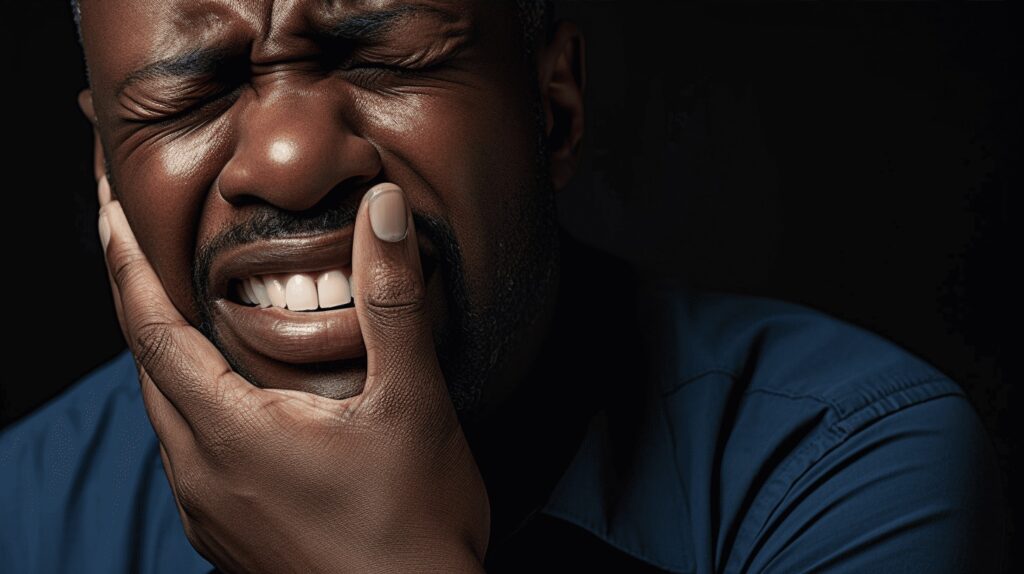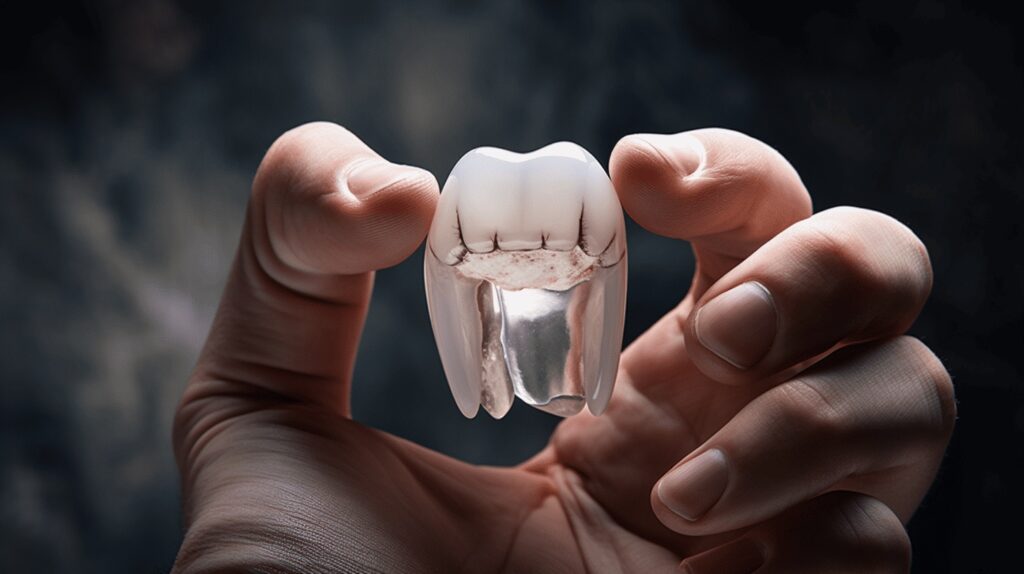Welcome to our comprehensive guide on emergency dental care Broken or Chipped Teeth! 😁
In this article, we aim to arm you with crucial knowledge on handling dental emergencies, particularly dealing with broken or chipped teeth. We’ve all had those stomach-churning moments: a child takes a tumble and chips a tooth, a friend breaks a tooth on a tough piece of candy, or a co-worker suffers a knocked-out tooth during a game.
These circumstances are certainly upsetting, but quick and effective action coupled with immediate dental care can significantly increase the chances of saving an injured or damaged tooth.
This guide will also shed light on the importance of maintaining dental health and its impact on our overall wellness. It will underline the undeniable role of regular dental check-ups in preventing severe dental issues. Moreover, we will also delve into how to navigate urgent dental care situations during the current pandemic.
We have also covered some advancements in the dentistry field and public health dental expenditure to give you a broader perspective.
So, buckle up and read on, for knowledge is power, and when it comes to your dental health, it’s no different!
Table of Contents
The Importance of Dental Health
Let’s start with this: your mouth is a window to your overall health. We all want that million-dollar smile, and maintaining that requires much more than just brushing twice a day. It’s about your dental hygiene becoming an imperative part of your wellness regimen – because really, it is more interconnected than you’d imagine.
Dental Coverage in Overall Wellness – Broken or Chipped Teeth
When we talk about health, most spotlight goes to maintaining a healthy heart or balancing sugar levels. However, brushing aside dental health could have serious consequences ─ just as severe as heart problems or diabetes.
And our data clearly validates this claim. An impressive 82% of adults believe dental coverage as an essential element of overall wellness.
Now, you might be wondering how dental health fit into the big wellness picture. Here are some points to ponder:
- Poor dental hygiene could lead to serious health challenges like respiratory disease or, in extreme cases, stroke.
- A healthy mouth ensures the proper functioning of our digestive system. An unhealthy one can contribute to nutritional deficiencies.
- An unhealthy mouth could also be a ‘base camp’ for bacteria, which could lead to periodontitis – a severe gum infection that could actually damage your jawbone and other tissues.
The ways in which dental health affects our overall wellness are innumerable, and taking steps to maintain ours should be top in the priority list. The importance of oral health is increasingly becoming an essential discussion in our society, and rightly so.
Dental Insurance Gap – Broken or Chipped Teeth
Despite the rising awareness about dental health, there exists a considerable gap in obtaining dental insurance. Roughly 68.5M adults in the US do not have access to dental insurance, consequently pushing oral health care further down their priority list.
Unfortunately, the lack of proper dental coverage often leads to compromised dental care. As dental procedures can be costly, the absence of insurance can discourage individuals from routine dental check-ups or dealing with minor dental issues promptly ─ eventually leading to more severe health problems.
Regular check-ups can help identify and tackle oral issues at an earlier stage, limiting the potential for significant health problems down the road. The lack of insurance, thus, becomes a hurdle in achieving and maintaining dental health.
So, how can we bridge this gap?
Public awareness about the benefits of dental insurance is a potential solution. Similarly, more accommodating insurance policies, subsidies, or inclusive workplace coverage could also encourage more frequent dental visits.
In the end, a holistic approach towards health, which includes rigorous dental care routines, is the key to a healthier you. Embrace the importance of dental health, because it is indeed crucial ─ for a glowing smile and a healthier life.
Keep smiling, keep shining! 😁
Dental Health in Children – Broken or Chipped Teeth
Neglecting a child’s dental health can potentially lead to various serious problems, some of which may escalate quite rapidly. As children, we may not have appreciated the implications as much, but our parents often insisted on regular dental check-ups, brushing teeth twice daily, flossing, and limiting our consumption of sugar-dense foods. But why did they stress so much on these habits? Let’s dive into the matter.
Emphasizing dental health from an early age is exceptionally crucial. It influences not only kids’ oral health but also their school performance and overall well-being. Yet, a shocking percent of children aged 2-19 years old—46% to be precise—have untreated or restored dental caries due to varied reasons.
Untreated Dental Problems in Children
Several children have untreated dental issues, putting them at risk of severe pain, infection, incapacity to eat or sleep properly, and even problems with social interaction and school attendance. Furthermore, Medicaid reports a staggering 69% of emergency room visits are related to dental emergencies in children.
Accidents can happen, but many dental issues can be prevented or at least minimized with regular dental checkups. Kids should be encouraged to brush their teeth twice a day using fluoride toothpaste and floss regularly to prevent the buildup of plaque and tartar. Also, limiting the consumption of sugary foods and drinks can significantly reduce the risk of dental caries.
The prevention of dental problems not only ensures the preservation of the child’s physical health but also their emotional and psychological wellbeing. Children who experience regular pain from cavities may have issues with concentration, thus inhibiting their ability to learn and develop.
Enforcing good oral health care habits from a young age is a concrete investment in your child’s future. A healthy smile can serve as a confidence booster, encouraging children to socialize and express themselves freely.
🦷 Remember, a healthy mouth is a gateway to a healthy body. Let us do our bit in ensuring our kiddos grow up with the brightest and healthiest of smiles. 🦷
Now, isn’t it quite clear why our parents incessantly emphasized maintaining good oral hygiene during our childhood? It’s about time we pass on these essential habits to the next generation.
Urgent Dental Care Needs
It’s no secret that dental problems can strike at the most inconvenient times. That throbbing pain in your tooth won’t wait for your dentist’s availability, and when that happens, what you need is urgent dental care. It becomes a top priority to manage this pain as it not only affects your oral health but also your day-to-day activities.
One of the most common sources of such tormenting pain is Root Caries. This condition is a severe concern today, as alarmingly, 54% of people with root caries experience severe pain and subsequently require urgent dental care.
Root Caries Pain Management – Broken or Chipped Teeth
Managing Root Caries pain doesn’t have to be daunting if you arm yourself with the right information. The first step in this process is identifying whether your pain could be due to root caries. Look out for symptoms such as sensitivity in your teeth when consuming hot or cold foods and beverages, noticeable holes or pits in your teeth, or dark spots on your teeth.
In order to relieve the pain, here are some actions that can be taken at home:
- Over-the-counter painkillers: Ibuprofen or other non-prescription painkillers can be used temporarily.
- Oral Anesthetic Gels: Applying these gels on the affected area can numb the spot and give temporary relief.
- Saline Rinses: A good rinse with warm salt water can also help ease the pain slightly.
Please note that these are only measures to manage the pain temporarily. It’s important to remember that these remedies don’t address the underlying issue requiring professional medical intervention. For this reason, reaching out to a dental professional is imperative.
Connecting with a dental professional regarding your Urgent Dental Care Needs will enable faster and more effective solutions. Dental experts can provide necessary treatments like dental fillings, root canal treatments, or even extraction, in severe cases.
You don’t have to navigate your dental health challenges alone. Through knowledge, timely action, and professional help, you can overcome these issues with ease. Bear in mind that your dental health is an integral part of your overall well-being and should never be neglected.
Remember, the pain is just a signal that calls for your attention. So, pay heed, take action, and keep smiling. 😊
Emergency Room Dental Visits
Nothing strikes fear and annoyance in the hearts of individuals quite like an odd-hour dental emergency. These sudden inconveniences often result in frantic Google searches for “dental help near me.” In many cases, emergency room dental visits become the need of the hour.
Have you ever wondered, “How common are ER visits for such discomforting dental emergencies?” You might be surprised to learn that an estimated 2.1 million emergency room visits in 2017 were specifically for dental emergencies. Additionally, Emergency Departments around the country report receiving approximately 2.4 million visits annually for non-traumatic dental conditions.
ER Visits for Dental Emergencies
As peculiar as it may sound, dental emergencies make up a significant percentage of ER visits. Why? Well, it mostly boils down to the severity of the problem, timing, and accessibility to dental care.
Let’s dive into some of the key reasons as to why people often turn up at the emergency room for dental care:
- A dental emergency may occur at odd hours, when regular dental offices are closed.
- Some individuals might not have a dentist and will resort to the ER in case of severe discomfort.
- Dental insurance isn’t as common as general health insurance, leading many to seek treatment in ERs where treatment can’t be denied based on inability to pay.
If you find yourself experiencing a dental emergency, don’t fret. Remember that there’s help out there. Our Emergency Dental Visits page is packed with friendly, accessible advice on dealing with dental issues that just can’t wait, even if your regular dentist’s clinic is closed.
While ER visits for dental emergencies are a common occurrence, having knowledge about these situations can help mitigate the stress. It’s always about finding the right help at the right time and we, at LA Dentist, are committed to being that reassuring hand on your shoulder, ready to guide you through these dental predicaments. Embrace such knowledge and let it be your guide. Remember, dental problems are no cause for panic when you have the right information at your fingertips. After all, the goal is always a vibrant, pain-free smile, isn’t it? And attain that, you surely will! 😄
Waiting for Emergency Dental Treatment
Often, we’ve all been a victim of the pain that accompanies dental problems. Maybe it’s a stressful toothache or a broken tooth that just occurred due to a sudden accident; these are situations that call for emergency dental treatment. Yet, the shocking truth is that patients, on average, wait for around 228 days for emergency dental treatment. You heard it right, not weeks but days, which can easily translate into months of unsolicited pain and discomfort. Let’s delve deeper into why such extensive waiting periods for dental treatments exist and why it’s so essential to address emergency situations at the earliest.
The Long Wait – Why It Happens?
- Dental clinics often get packed with appointments, leaving little room for emergency cases.
- Many patients choose to wait it out, hoping the problem will resolve itself.
- Some might even postpone treatment due to dental anxiety or fear.
These are just a few reasons, but they significantly contribute to the lengthy wait for treatment. However, this wait often results in worsening the condition, making it more complex to treat, thereby leading to more severe implications.
Don’t Wait – Take Immediate Action!
Just as you wouldn’t let any other health concerns languish, dental problems should also be addressed promptly. Ignoring or waiting might lead to the condition escalating from an easy fix to a more serious one requiring invasive treatments and longer recovery times. We can’t stress enough how important timely intervention is for dental emergencies. Waiting for Dental Treatment can lead to prolonged suffering which could potentially be avoided with immediate attention.
In essence, next time you think about suffering in silence or waiting for your dental appointment, remember the average 228 days you might end up waiting. Choose to prioritize your dental health, and don’t let the fear of discomfort stop you from getting the treatment you need.
Listen👂to what your teeth are saying! They might be calling out for help, and the sooner you respond, the better for your overall health. So, if you’re suffering from a dental emergency, seek help quickly! Don’t prolong your pain or risk the potential implications of further complications. Your smile 😃 is precious; let’s keep it shining brightly! ✨
General Dental Care Practices – Broken or Chipped Teeth
Does a beautiful, confident smile mean a lot to you? Us too! Investing some quality time in taking care of your teeth and gums can indeed pay off, not just in a health sense but also in helping you feel self-assured and happy. In this section, we shall talk about the importance of regular dental office visits, and maintaining your dental hygiene during the pandemic – as 63% of patients are now ready to attend dentist appointments despite the ongoing health crisis.
Regular Dental Office Visits
So, let’s clear something up real quick – brushing and flossing daily is vital, but it’s only a part of the dental care story. Regular visits to the dentist are equally important as they help in preventing potential dental issues from becoming serious. Even though 42% of adults admit to not visiting a dentist regularly, we can’t stress enough how beneficial these visits are. Here are a few reasons why:
- You’re able to get your teeth deep-cleaned beyond your everyday oral hygiene routine
- Early warning signs of potential dental problems and illnesses can be detected
- It can help you keep your oral health in check, which, in turn, may affect your overall health.
Our General Dental Care Practices guide offers a trove of insights on why you should prioritize these regular check-ups.
Dental Hygiene during the Pandemic
Keeping good oral hygiene during the pandemic is not just about avoiding bad breath. It’s about maintaining your overall well-being – yes, tooth decay and gum diseases can cause serious health issues if left unchecked. Let’s cover some ways to keep that smile of yours healthy and dazzling during these testing times:
- Practicing good oral hygiene at home by brushing twice a day and flossing regularly is a must
- If you cannot make it to the dentist, virtual consultations can be a great way to get advice on any worrying symptoms
- Most importantly, do not underestimate the power of a balanced diet. Avoid high sugar foods and drinks that can lead to tooth decay.
To sum up, taking care of our oral health should be a non-negotiable part of our daily routine, whether it’s pandemic times or not. It doesn’t take much to keep that winning smile of yours in tip-top shape. So grab that toothbrush and make your oral health a priority today – let’s keep smiling together!
Advancements in Dentistry
Dentistry has come a long way, dear readers! We’ve moved past the age of dreadful tooth extractions and nerve-wracking braces. The dental field is expanding at a pace we’ve never seen before, complete with advancements that ensure your visit to the dentist is a comfortable and almost pain-free experience! Did you know we now have digital impressions that have made the goopy and gaggy impression material obsolete? Incredible, right? 🦷
From laser dentistry to dental implants, let’s dive into the world of modern dentistry and unravel the tech advancements that have transformed this field.
Employment in Dentistry 🎓
With these rapid advancements come ample opportunities! Many might wonder if pursuing a career in dentistry is worth it. Allow us to shed some light on that.
Employment in dentistry isn’t just blossoming; it’s absolutely booming right now 🚀. With a growth rate of 7% per year, this is faster than the average for all occupations! It’s a very promising field – replete with the opportunity to create, improve, and most importantly, to contribute positively to people’s lives.
Consider this:
- Advanced procedures are reducing treatment times and recovery periods, making dental care more efficient and manageable for patients and dental professionals.
- Emerging technologies are broadening the scope and potential within dental treatments, creating new specializations and job profiles in the process.
- The increasing awareness about oral health and the aesthetic appeal of a sparkling smile is driving more people to avail advanced dental care services – which means more job opportunities for you aspiring dentists!
So, folks, chasing a career in dentistry just might be your ticket to a rewarding professional experience! With technology as your ally, you can look forward to a continually evolving landscape filled with exciting advancements and myriad opportunities. Choose this path, and you’ll be well on your way to create a lasting impact in the lives of people while also enjoying a steadily growing career – cause let’s face it, who doesn’t want the perfect smile, right? 😁
Public Health Dental Expenditure
Broken or Chipped Teeth Introduction:
Are you experiencing a dental issue and weighing up the financial implications? You are not alone. As we navigate a world of rising healthcare costs, potential budget cuts, and insurance changes, dental health costs have unsurprisingly slid into the spotlight. In this section, we’re going to delve into the fascinating world of public health dental expenditure, arming you with valuable insights about spending trends and the impact of Medicaid coverage.
Decrease in Dental Spending
It’s hard to ignore the seismic shift in dental spending in recent years. A noteworthy trend we’ve observed is the decrease in national dental spending, which slipped by 6.3% from 2021 to 2022. Now, why is this important, you ask? You see, this dip ─ quite paradoxically ─ could reflect an increase in people’s struggle to afford dental care, leading to deferred treatments and decreased dental visits. This unfortunate reality underlines the need for more cost-effective and accessible dental healthcare options for everyone.
Key points to remember:
- National dental expenditure saw a reduction of 6.3% between 2021 and 2022.
- The decrease could be indicative of the hurdles people face when affording dental care.
Medicaid Dental Coverage
Thankfully, we’re seeing an indication of positive change with the advent of expanded Medicaid dental coverage. Quite impressively, our research shows that states with enhanced dental benefits have witnessed a significant 14.1% decrease in ER dental visits. What does this mean for you? Expanded coverage can alleviate the financial burden of dental healthcare and make ER visits due to dental issues a thing of the past. It’s a testament to the potential power of Medicaid coverage to transform dental health access and outcomes.
Main takeaways:
- Expanded Medicaid coverage has resulted in a 14.1% reduction in ER dental visits.
- Affordability and access to dental services have improved as a result.
You see, while we celebrate these advances, there’s undoubtedly more ground to cover in our quest for optimal dental health for all. By staying informed and proactive, we can collectively build towards a future where dental care is no longer a luxury, but a right available to everyone. After all, don’t we all deserve a winning smile? 😃
Oral Health in Universal Health Coverage – Broken or Chipped Teeth
When discussing the vision of universal health coverage (UHC), we cannot overlook the importance of prioritizing oral health. Did you know that oral health issues like tooth decay and gum diseases are among the most prevalent health conditions worldwide? They’re not just a personal problem, they’re a public health crisis. However, oral health is still often treated as an afterthought in many health policies. This has to change! Universal health coverage cannot be achieved without oral health care. Let’s dive deeper into why oral health is non-negotiable in UHC, and how we can make this happen.
There are plenty of reasons to include oral health care in UHC:
- Prevention is cheaper than cure. By regularly checking and maintaining oral health, we can prevent severe diseases that would require expensive treatments in the future.
- Oral health affects overall health. Many folks aren’t aware of this, but poor oral health can lead to severe health conditions like heart diseases and diabetes. The mouth is indeed a window into the health of the body.
- Oral health impacts quality of life. Toothaches, gum infections and other oral health issues can severely affect a person’s ability to speak, eat or even smile. Everyone should have the right to a life free from these preventable oral health problems.
Imagine a world where nobody has to worry about not affording a dental check-up, where children grow with healthy teeth because they were taught the importance of brushing daily, and where senior citizens can maintain a healthy and functional mouth even in their old age. Isn’t that a world worth striving for?
So, how can we ensure oral health care is included in UHC? There are three key strategies:
- Policy Integration: Oral health care policies need to be integrated into general health policies. Oral health should be considered just as crucial as any other aspect of health care.
- Education: Widespread awareness and education about the importance of maintaining good oral health is needed. This can be achieved through mass media campaigns and community programs.
- Accessibility: Dental check-ups and treatments should be made accessible and affordable for all citizens regardless of their income level, location, and socio-economic status.
At the heart of it all, what we need is a collective shift in mindset – from considering oral health as something supplementary to treating it as a core component of our overall health and well-being Broken or Chipped Teeth.
So next time we discuss universal health coverage, let’s make sure oral health isn’t an afterthought, but a crucial part of the conversation. After all, a healthy mouth is often the starting point of a healthy body! 💪😄
Conclusion – Broken or Chipped Teeth
In our journey through the discussion of dental health and its importance, one key understanding that reverberates is how precious our dental health is. Problems lurking in our mouth can provoke so much pain and discomfort leading to inevitable emergency dental visit at most unfortunate times.
At Wilshire Smile Studio, not only do we provide emergency dental care but also emphasize on proactive measures. We believe in prevention and education being the tool in maintaining good oral health. The adage, ‘Prevention is better than Cure,’ is at the heart of our approach. It’s not just about emergency treatment; it’s about long-term oral health that leads to a healthier, happier life.
This is why at every visit to Wilshire Smile Studio, we ensure that we provide information helping our patients understand their oral health better and make decisions leading to a smile that lasts a lifetime. It’s not just what we do; it’s our commitment to you. 🤝
Keep smiling, and remember to take good care of your teeth – they are meant to last you a lifetime! 😊
Book your free consultation with us online or call (323) DENTIST (323-336-8478) today.
Frequently Asked Questions – Broken or Chipped Teeth
1. What should I do if I have a broken or chipped tooth?
If you have a broken or chipped tooth, it is important to seek immediate dental care. Rinse your mouth with warm water, apply a cold compress to reduce swelling, and save any broken tooth fragments. Contact your dentist as soon as possible Broken or Chipped Teeth.
2. Is a broken or chipped tooth considered a dental emergency?
Yes, a broken or chipped tooth is considered a dental emergency. It can cause severe pain, bleeding, or infection if left untreated. It is crucial to see a dentist promptly for proper evaluation and treatment Broken or Chipped Teeth.
3. Can a broken or chipped tooth be repaired?
In most cases, a broken or chipped tooth can be repaired by a dentist. The treatment options depend on the extent of the damage. They may include dental bonding, dental veneers, dental crowns, or dental implants, depending on the severity of the injury.
4. Will I experience pain during the treatment of a broken or chipped tooth?
Your dentist will ensure that you are comfortable and numb during the treatment of a broken or chipped tooth. They may administer a local anesthetic to numb the area, ensuring a pain-free experience.
5. Can I prevent my teeth from chipping or breaking?
While accidents can happen, you can take some precautions to minimize the risk of chipping or breaking your teeth. Avoid biting hard objects, wear a mouthguard during sports activities, practice good oral hygiene, and schedule regular dental check-ups to identify and address any potential issues.


